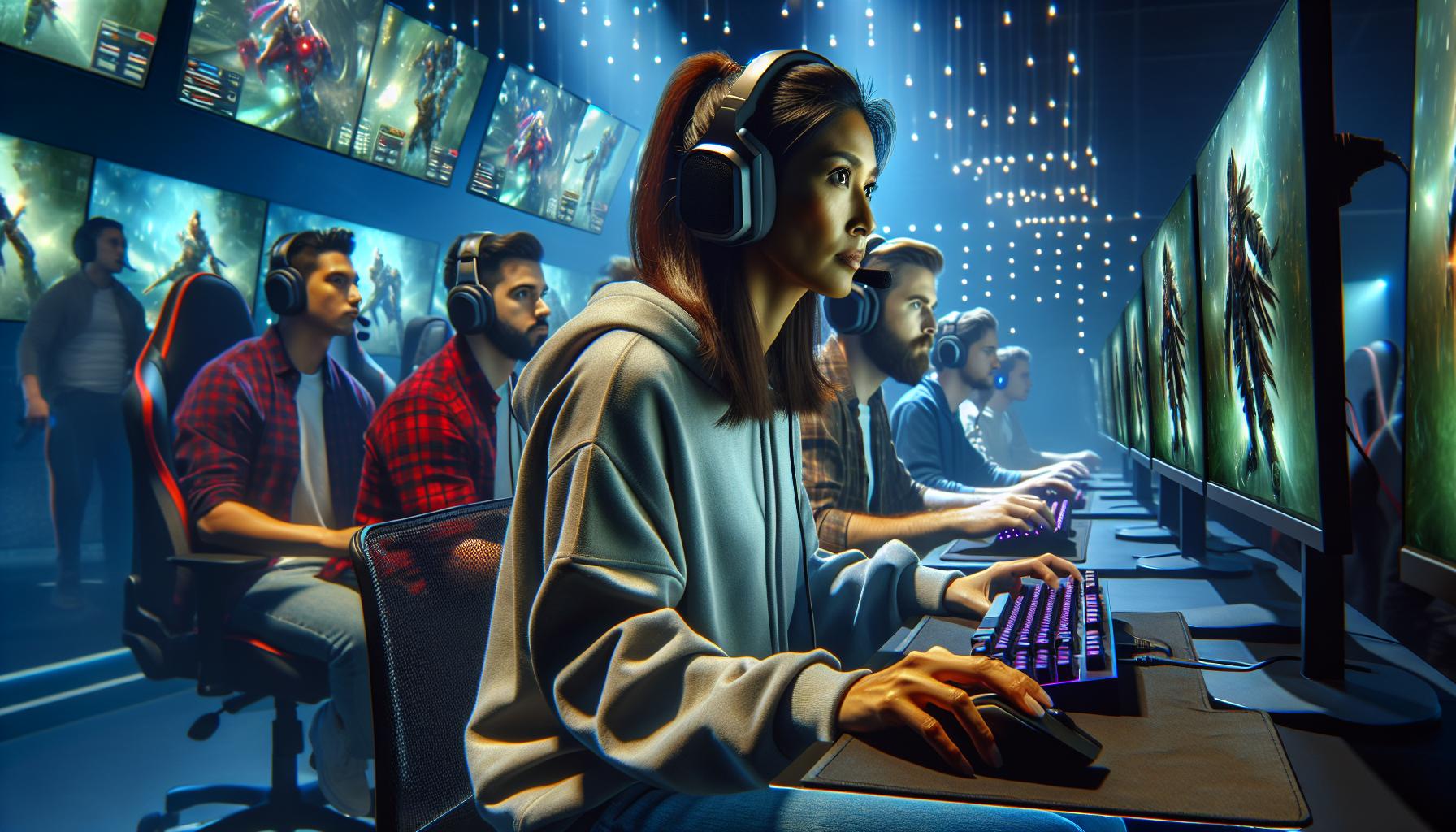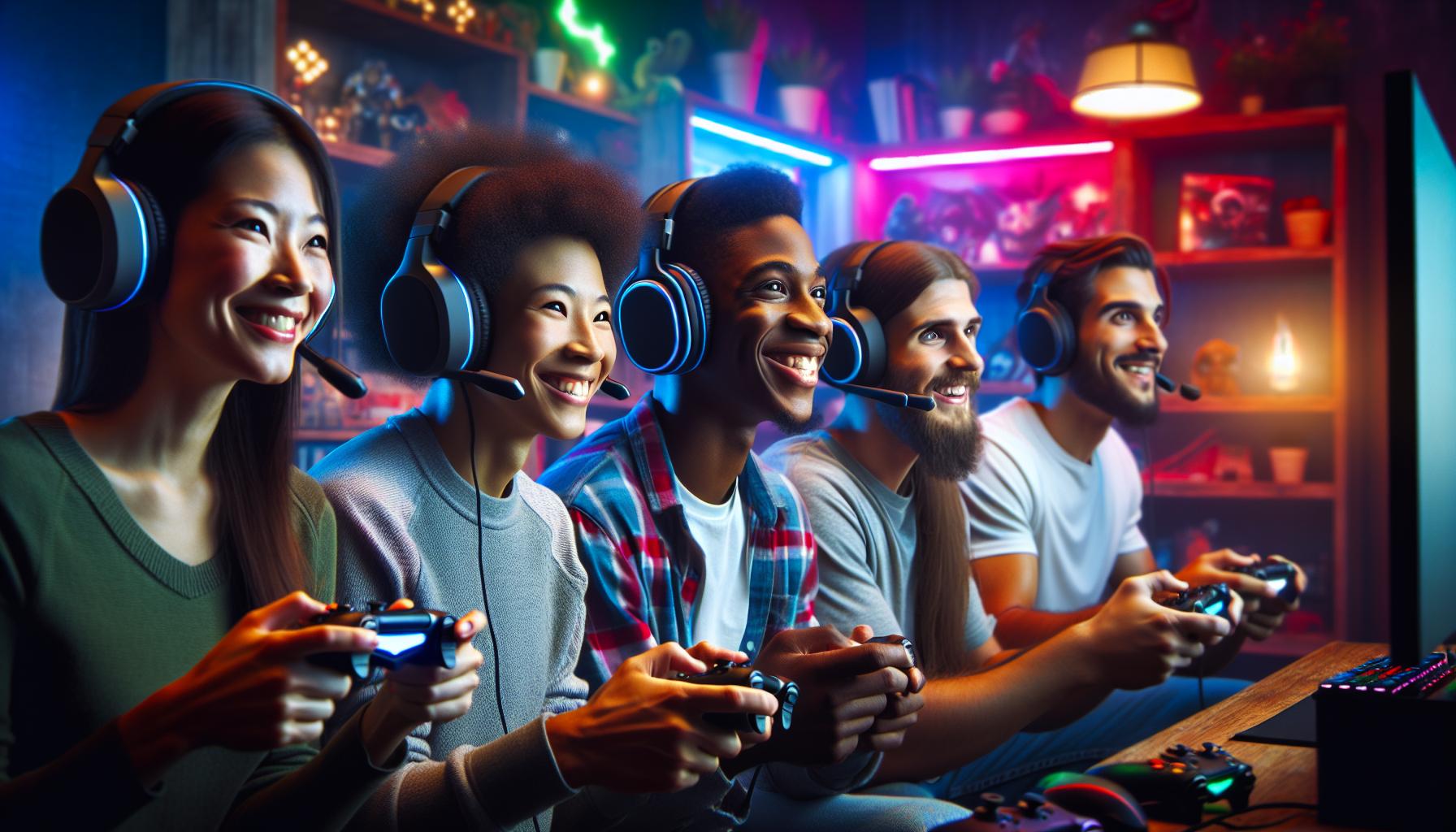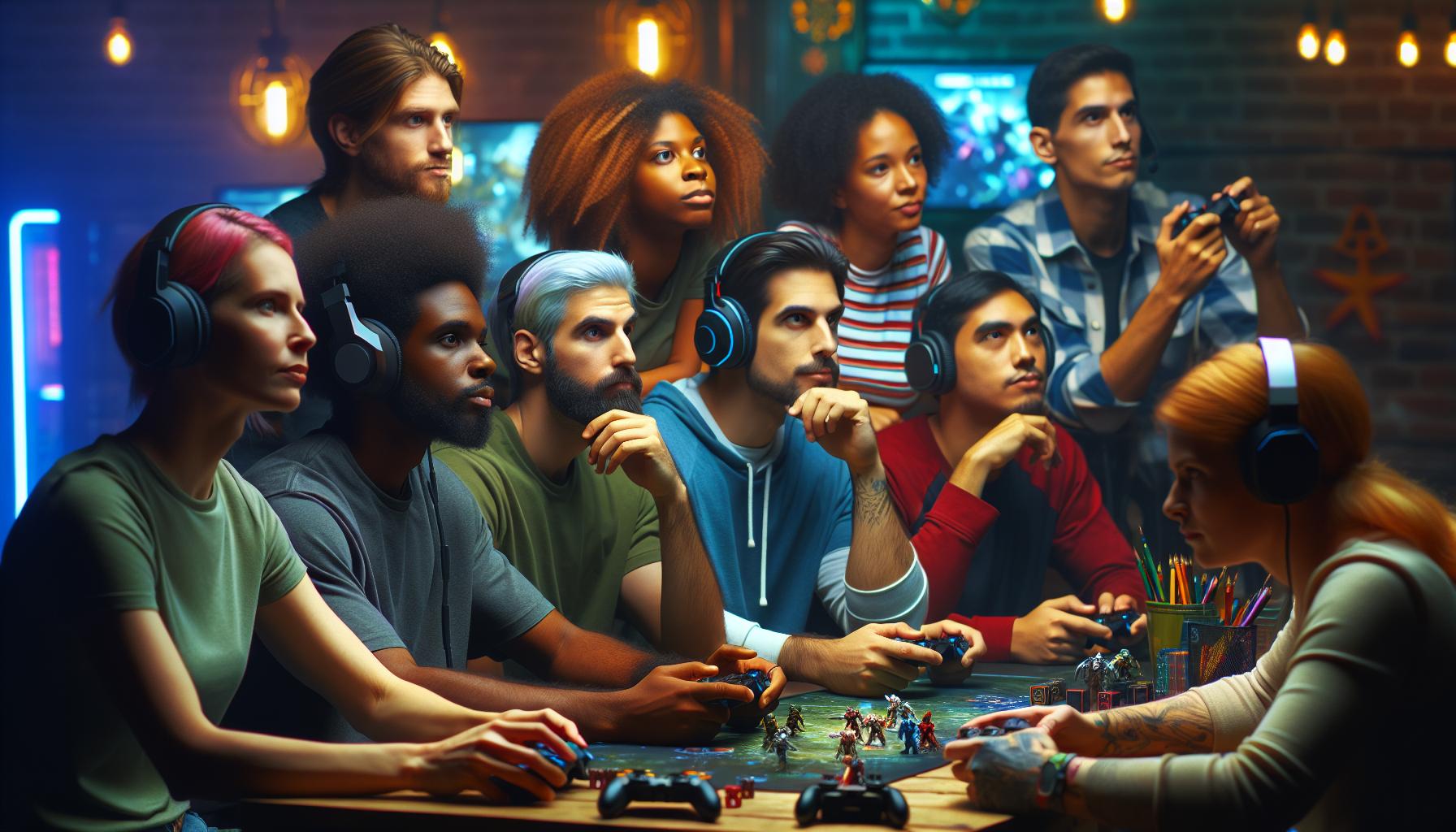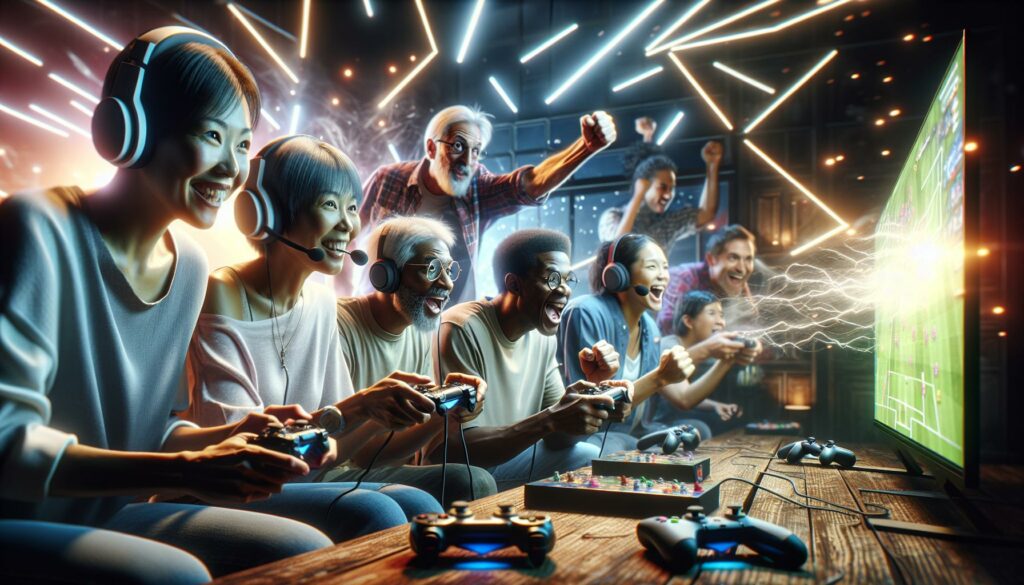Gaming culture has evolved from a niche hobby into a global phenomenon that shapes entertainment, social connections and even professional careers. With over 3 billion gamers worldwide, this dynamic community continues to challenge stereotypes and redefine what it means to be a “gamer” in today’s digital age.
Which Statement About Gaming Culture is True? The gaming landscape has transformed dramatically since the days of arcade machines and early consoles. Today’s gaming culture encompasses everything from casual mobile games to competitive esports tournaments with million-dollar prize pools. As this vibrant community grows more diverse, separating gaming facts from fiction becomes increasingly important for both newcomers and veterans alike.
Which Statement About Gaming Culture is True
Gaming culture transformed from isolated arcade communities into a global phenomenon that shapes entertainment trends entertainment trends across digital platforms.
From Niche Hobby to Mainstream Entertainment
Gaming’s journey to mainstream acceptance spans four decades of technological innovation. The 1980s arcade scene created the first gaming communities, with players gathering at local venues to compete for high scores. By the 1990s, home consoles like the Nintendo Entertainment System brought gaming into 50 million households worldwide. The rise of mobile gaming in the 2010s expanded the gaming demographic, with 2.7 billion mobile gamers participating across age groups. Social media integration transformed gaming into a shared experience, with platforms like Twitch hosting 31 million daily active users who watch gaming content.
The Rise of Esports and Competitive Gaming
Competitive gaming evolved into a professional industry worth $1.38 billion in 2022. Major tournaments like The International offer prize pools exceeding $40 million, attracting over 73 million concurrent viewers. Professional teams now operate like traditional sports organizations, with dedicated training facilities, coaching staff, and player contracts worth millions. Games like League of Legends maintain active player bases of 180 million monthly users who participate in ranked competitive systems. Regional leagues across North America, Europe, and Asia provide structured competition paths from amateur to professional levels.
Diversity and Inclusion in Gaming Communities

Gaming communities embrace diverse perspectives across gender, age, ethnicity, and cultural backgrounds. Demographics showcase an evolving landscape where representation spans multiple dimensions of player identity and experience.
Breaking Gender and Age Stereotypes
Female gamers constitute 48% of the gaming population, challenging traditional perceptions of gaming as a male-dominated activity. The age distribution of gamers spans multiple generations, with 38% of players aged 18-34, 26% aged 35-54, and 21% over 55. Mobile gaming platforms attract a balanced gender ratio, with women representing 51% of mobile gamers. Professional gaming leagues feature dedicated women’s divisions with notable tournaments like Intel Challenge Katowice offering $100,000 prize pools. Game developers integrate inclusive character creation options, enabling players to represent themselves authentically across 15 leading game franchises.
Global Cultural Exchange Through Gaming
Online gaming platforms connect players from 175 countries, fostering cross-cultural understanding through shared experiences. Multiplayer games incorporate culturally specific elements, with 65% of top-selling titles featuring multilingual support in 30+ languages. Asian gaming markets influence global trends, contributing $72.2 billion to the industry in 2022. International esports tournaments unite teams from 6 continents, broadcasting to audiences in 25 languages. Gaming platforms host cultural events, celebrating traditions like Lunar New Year with specialized content reaching 300 million players worldwide.
Social Connections in Virtual Spaces

Gaming platforms create digital environments where millions of players interact daily, forming meaningful relationships across geographical boundaries. Modern gaming networks host over 100 million active monthly users, facilitating diverse social interactions through multiplayer experiences.
Online Friendships and Communities
Virtual gaming spaces foster authentic social connections through shared experiences. Discord servers dedicated to specific games host 140 million active users who organize events, share strategies, and build lasting friendships. Gaming clans and guilds maintain structured hierarchies, with established groups counting 500+ members across multiple time zones. Players collaborate on in-game missions, participate in community tournaments, and celebrate achievements together. Studies from the University of California show 80% of gamers maintain long-term friendships with people they met through online gaming.
Gaming’s Impact on Communication
Digital gaming platforms enhance communication skills through varied interactive features. Voice chat systems process 3 billion minutes of conversations monthly across major gaming networks. Cross-cultural exchanges occur naturally as players from 175 countries collaborate in team-based games. Gaming terminology creates a universal language, with common phrases understood across linguistic barriers. Real-time translation features in popular games facilitate conversations between players speaking 30+ different languages. Multi-player coordination develops strategic communication abilities, evidenced by 65% of regular gamers reporting improved team collaboration skills in professional settings.
Common Misconceptions About Gaming Culture

Gaming culture faces numerous misconceptions despite its widespread adoption across diverse demographics. Research data challenges traditional stereotypes through empirical evidence about player behavior patterns.
Debunking Negative Stereotypes
Modern gaming communities actively challenge outdated perceptions about violence correlation. Studies from the American Psychological Association reveal no direct link between gaming engagement and aggressive behavior. Research indicates that 71% of parents recognize gaming’s positive impact on children’s problem-solving abilities. Gaming environments promote teamwork through multiplayer experiences that require strategic coordination. Players develop critical thinking skills through complex puzzle-solving scenarios in games like Portal 2 or The Witness. Time management data shows that 76% of gamers maintain balanced lifestyles with regular exercise routines. Social connectivity metrics demonstrate that gamers spend an average of 6.5 hours weekly participating in community activities outside gaming.
The Reality of Gaming Demographics
Current gaming demographics reflect a diverse participant base across age groups. Data from the Entertainment Software Association shows players average 35 years old, contradicting the teenagers-only stereotype. Female players constitute 48% of the gaming population, with particularly strong representation in mobile gaming sectors. Professional sectors include players from 175 countries competing in international tournaments. Senior gamers aged 55+ make up 21% of the player base, engaging primarily through puzzle games mobile platforms. Income distribution among gamers spans all economic brackets, with 65% holding full-time employment. Educational statistics reveal 55% of gamers possess college degrees, demonstrating high academic achievement rates. Cultural diversity metrics show gaming communities represent over 30 different primary languages in major gaming networks.
The Economic Impact of Gaming
The gaming industry generates $184.4 billion in annual revenue globally. This economic powerhouse creates substantial opportunities across multiple sectors while influencing traditional business models.
Career Opportunities in Gaming
The gaming industry supports 3.2 million jobs worldwide across diverse roles. Game developers earn average salaries of $85,000, with senior positions commanding $150,000+. Professional esports players generate income through tournament winnings, sponsorships, streaming revenue. Top streamers earn $500,000+ monthly through platforms like Twitch, YouTube Gaming. Game testing positions provide entry-level opportunities at $45,000 annually. Marketing specialists focusing on gaming campaigns earn $65,000-$95,000. Gaming content creators monetize through multiple revenue streams including:
- Ad revenue from gameplay videos
- Sponsored content partnerships
- Merchandise sales
- Subscription-based communities
- Live streaming donations
Gaming’s Influence on Other Industries
Gaming technology transforms traditional sectors through innovative applications. Healthcare organizations utilize gaming engines for medical training simulations, reducing costs by 60%. Military organizations implement gaming-based training programs, saving $1.7 million per program annually. Educational institutions integrate gamification elements, increasing student engagement by 40%. The film industry adopts gaming technology for:
- Virtual production techniques
- Real-time rendering
- Motion capture
- Visual effects creation
- Virtual scouting
- Vehicle design visualization
- Virtual showrooms
- Driver training simulations
- Safety system testing
- Consumer engagement platforms
Modern Culture in Gaming
Which Statement About Gaming Culture is True? Gaming culture stands as a dynamic and inclusive force that shapes modern entertainment social interaction and professional opportunities. The statistics paint a clear picture: 3 billion gamers worldwide diverse demographics and billions in economic impact. This vibrant ecosystem continues to break stereotypes and foster meaningful connections across geographical boundaries.
The gaming industry’s influence extends far beyond entertainment transforming sectors like healthcare education and technology. As virtual spaces evolve and technology advances gaming culture will undoubtedly continue to grow innovate and unite people from all walks of life.

